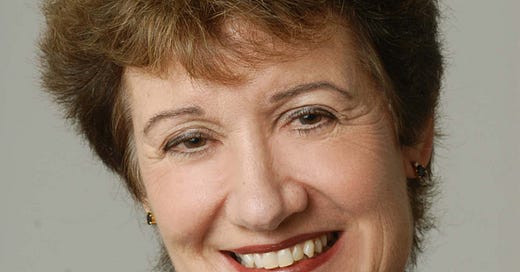America has lost its heroes? A piece from my favorite historian Heather Cox Richardson (cross-posted here), disputes the claim, and I agree. On the other hand, it saddens all of us who recognize the human flaws of the figures we once considered superheroes, the likes of George Washington, Thomas Jefferson, and Martin Luther King, Jr. However, Dr. Richardson argues that another sort of hero lives among us: those everyday heroes with the courage to act when they see dangers or abuses, those willing to help a stranger in need, and those who speak truth to power. Her examples include Anne Frank, Rosa Parks, and John Hancock. I would add Anthony Fauci, Liz Cheney, and Wesley Autrey (the fellow who famously saved the life of a man who fell into the tracks of an oncoming subway train).
What’s the connection with Shakespeare?
Consider Othello, the story of a man, crazed by the “green-eyed monster” of jealousy—who, having been persuaded that his wife, Desdemona, is “making the beast with two backs” with another man, smothers her with a pillow. But Othello had been duped by “fake news” planted in his mind by the vengeful Iago. Hearing of Desdemona’s fate, Emilia (her maidservant and also Iago’s wife) realizes that her husband is the real villain, and she dares to reveal the truth. It is truly a heroic act for which she pays with her life, as Iago slays her.
Philip Zimbardo and I discovered that Emilia is not an outlier. There are many such heroes in Shakespeare’s works, where the plots turn on the action of such an everyday hero in nearly half of his plays. Most of these otherwise unremarkable folk are women; many of them dare to defy the orders of their husbands, fathers, or other men of power and station. Among them, you may recall Cordelia, King Lear’s daughter who refuses to flatter her father to gain a share of his kingdom. Others of their ilk include Paulina (The Winter’s Tale), Miranda (The Tempest), Portia (The Merchant of Venice), and Imogen (Cymbeline). Arguably, even the Weird Sisters dared to speak their truth to Macbeth’s power.
In our book, Psychology According to Shakespeare, Dr. Zimbardo and I devote a chapter to these quotidian heroes and a modern-day counterpart, Dr. Christina Maslach, a grad student of Zimbardo’s in the early 1970s. At the time, when he was running his famous Stanford Prison Experiment, Maslach dropped by the lab—the mock prison—to observe. There Zimbardo had randomly assigned 24 male student volunteers to play the role of either a prisoner or a guard for two weeks; he took a role as well: that of the prison superintendent. What Maslach saw horrified her: guards humiliating the prisoners, often with homophobic slurs; making them wear bags over their heads; and punishing them with pushups, solitary confinement, and frequent counts. Worst of all, she saw that Phil had been caught up in the role of superintendent and was allowing the abuse to happen. So she, the student, courageously called out the professor. And following a difficult quarrel, he called off the experiment—after only six days.
(Note: Maslach and Zimbardo were later married, and remained so for over 50 years, until his passing last October. Dr. Maslach is a well-known psychologist in her own right, known for her research on burnout.)





That's incredible! Everyone knows the story of the experiment but that's the first time I've heard how it ended. Thanks for this - and the excellent Shakespeare insights.